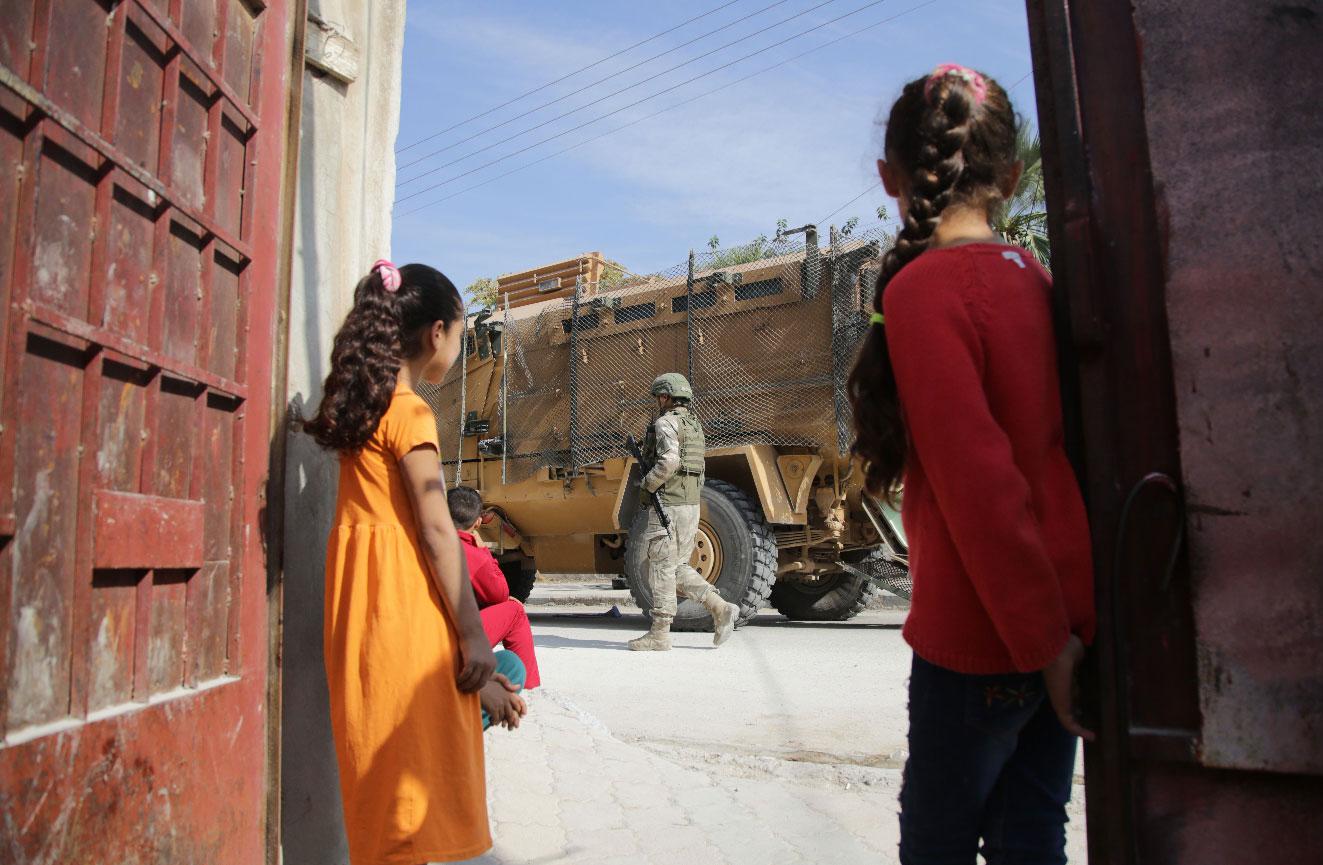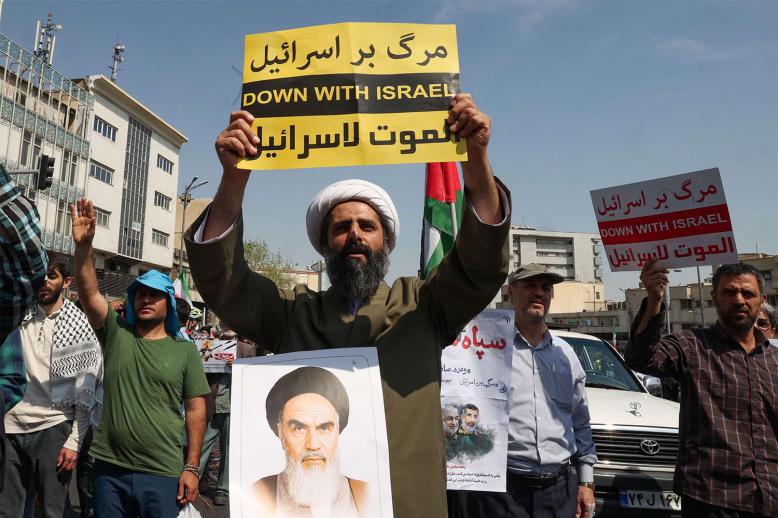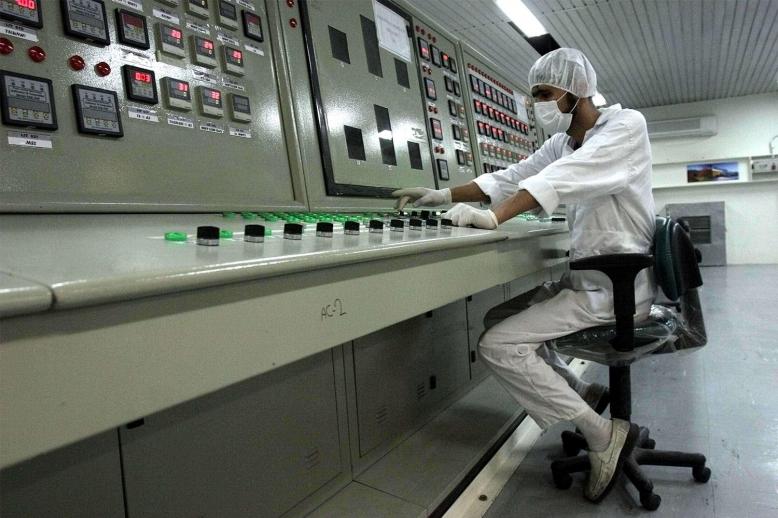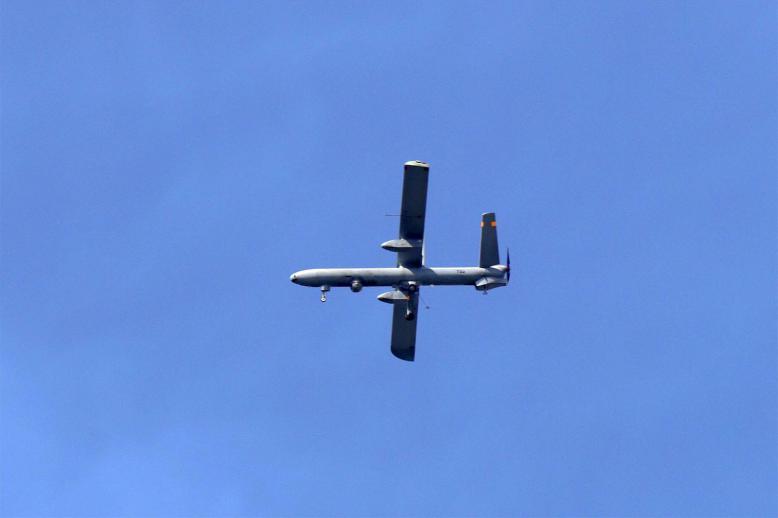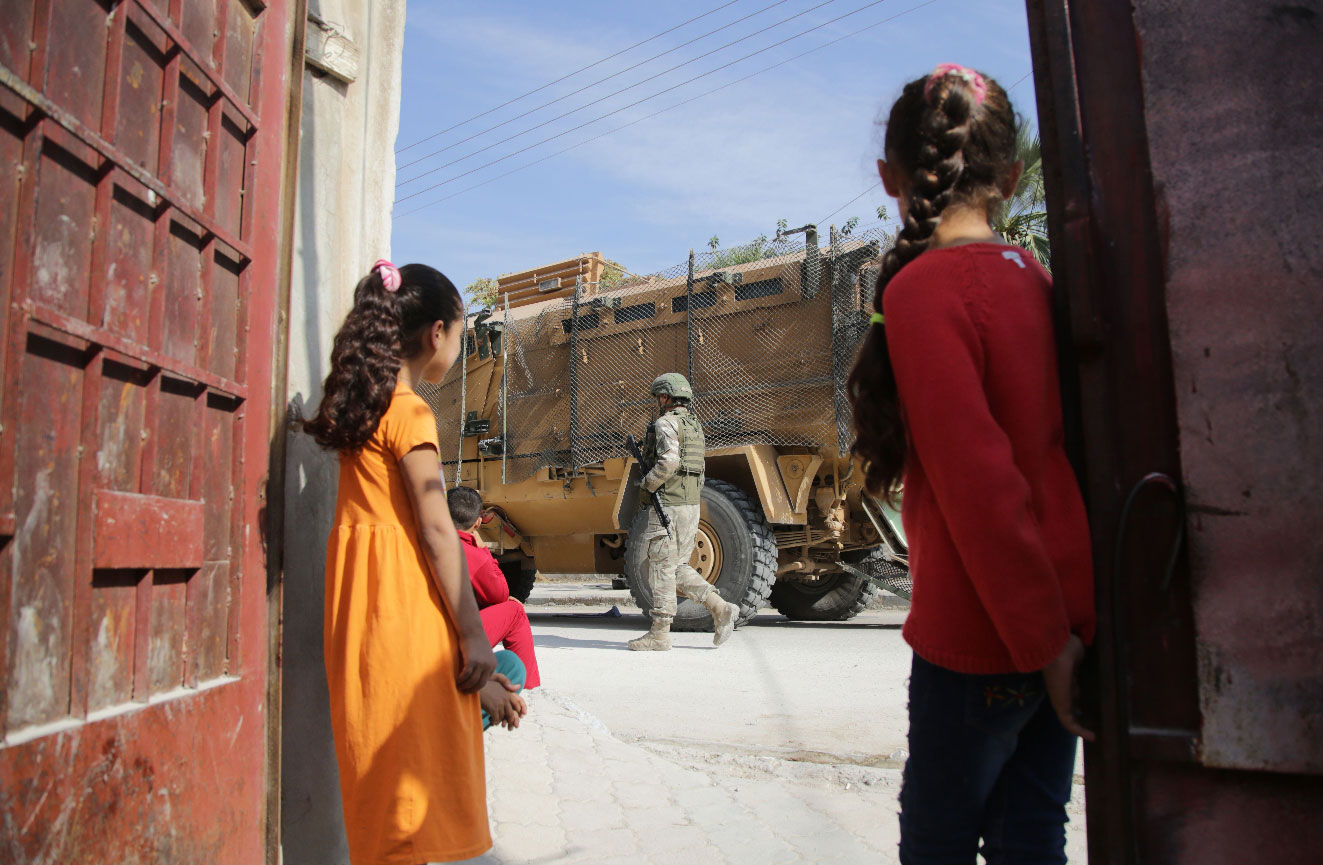Deal between Russia, Turkey kills Kurdish hope for self-rule
BEIRUT - A Turkish-Russian deal signed in the Black Sea resort of Sochi that carves up northeastern Syria sounds the death knell for Kurdish autonomy, analysts say.
Syria's Kurds had hoped that the sacrifices made in the name of the international community to help crush the Islamic State group's "caliphate" would pay off.
But instead of supporting their political project, the United States is pulling out of Syria altogether, ruining the minority's aspirations for more autonomy.
The Sochi agreement defines the contours of the debacle for the Kurdish forces, who still controlled close to a third of Syria two weeks ago and have now lost almost everything.
"For the Kurds, this is the end of Rojava, of their dreams of autonomy," is how Fabrice Balanche, a geographer specialised in Syrian affairs, summed it up.
The fate of Rojava - the name Kurds give to their region - was sealed in a handshake late Tuesday between Turkish President Recep Tayyip Erdogan and his Russian counterpart Vladimir Putin.
Turkey was granted the right to remain fully deployed in an Arab-majority area it has dubbed a "safe zone" that was the main target of an offensive it launched on October 9.
It stretches along 120 kilometres (75 miles) and is 32 kilometres deep, forming a zone into which Erdogan wants to send back some of the 3.6 million Syrian refugees his country hosts.
Massacre averted
The Kurdish administration in the region says they have lost some 11,000 fighters in five years of ground operations under the command of the US-led coalition against IS.
Nevertheless, the recent Turkish assault was made possible by a pullback of US troops deployed along the border as a buffer force between their NATO ally Turkey and the Kurdish fighters of the Syrian Democratic Forces (SDF).
The withdrawal by their erstwhile ally left the Kurds completely in the lurch, forcing them to turn to the Damascus regime for protection from an expanded Turkish assault.
Government forces, who are backed by the Russian military, rushed north within days, ostensibly to pin back Turkish-backed Syrian proxies but also to reclaim control of swathes of territory that the regime started leaving in 2012.
Russia's defence ministry said Wednesday a convoy of its military police had crossed the Euphrates River and "advanced towards the Syrian-Turkish border".
Under the Sochi deal, Russian military police and Syrian border guards are to "facilitate the removal" of Kurdish People's Protection Units (YPG) fighters and their weapons from within 30 kilometres (18 miles) of the Turkish-Syrian border, within 150 hours.
Russia and Turkey will then start joint patrols in two zones stretching 10 kilometres (six miles) to the east and west of Turkey's 120 km-long safe zone. That will allow Turkey to patrol with Russia in areas of Syria that were not part of its offensive.
The implementation of the article stipulating a Kurdish pullback, which the outgunned Kurdish forces are in no position to resist, involves relinquishing control of some of their main towns.
The Sochi agreement includes an exception for Qamishli, the de facto capital of the now defunct autonomous region.
"In terms of loss of territory, they lose everything," said Balanche. "Damascus reclaims control of everything that Turkey does not occupy."
The Syrian Observatory for Human Rights, a Britain-based war monitor, said the "safe zone" area was calm on Wednesday.
But explosions hit various parts of Syria's northeast, including Qamishli and the town of Suluk in the Tal Abyad region near Turkey's border.
The car bomb in Qamishli did not cause casualties, according to the Observatory. But the blast in Suluk, controlled by Ankara's rebel proxies, killed three fighters, a rebel commander there said. It was unclear who was responsible.
Kurds staged angry demonstrations Wednesday in Qamishli.
"This deal serves the interests of foreign powers and not the interests of the people," said official Talaat Youndes. "Turkey's objective is to kill, displace and occupy the Kurds."
The only positive thing the Putin-Erdogan bargain does for the Kurds is to freeze the Turkish offensive and avert another phase of bloodletting by the Turkish military and its Syrian Arab proxies.
Dozens of civilians and more than 250 Kurdish fighters were killed in the offensive Ankara has dubbed "Operation Peace Spring".
The head of the SDF, Mazloum Abdi, had made clear after the start of Turkey's assault that compromises were preferable to "genocide".
Absorbed by Damascus
"They (the Kurds) avoid a broader Turkish operation that could have chased Kurdish populations away from their land, as was the case in Afrin," said Balanche.
Afrin is a formerly Kurdish-majority area further west that Turkey and its proxies occupied early last year.
Ankara blacklists the YPG - the main component of the SDF - as a terrorist organisation citing links to the deadly 35-year-old insurgency inside Turkey of the Kurdistan Workers Party (PKK).
The SDF was the autonomous region's de facto army but will now likely be absorbed into the Syrian federal army, analysts said.
"The YPG might eventually become a fighting force subsumed into the Syrian army," Syria researcher Samuel Ramani said.
"Whether or not they will lose land all the way to the Iraqi border, it's too early to say right now," he said.
The US withdrawal from northern Syria leaves Russia, which sent its forces to support a beleaguered President Bashar al-Assad in 2015, as the unrivalled dominant foreign player in Syria.
Damascus and Moscow have made clear that allowing the oil-rich northeast or any other region to remain outside of central government control is not an option.
The Kremlin on Wednesday said the US had betrayed and abandoned the Syrian Kurds, advising the Kurds to withdraw from the Syrian border as per the deal with Ankara.
Putin discussed the situation in northern Syria in a phone call on Tuesday with Assad, the Syrian presidency said in a statement.
Putin told Assad that any agreement between Turkey and Russia will focus on fighting all kinds of terrorism and dismantle any "separatist agendas" on the Syrian land. Assad meanwhile reaffirmed his complete refusal of any invasion of Syrian land under any pretext.
"Russia is certainly not willing to help the Kurds per se, but it also wants to restrain the scope of Turkey's military presence and wants to ensure that as many Kurdish areas as possible are returned to the Assad regime and become reintegrated in Syria," Ramani said.

